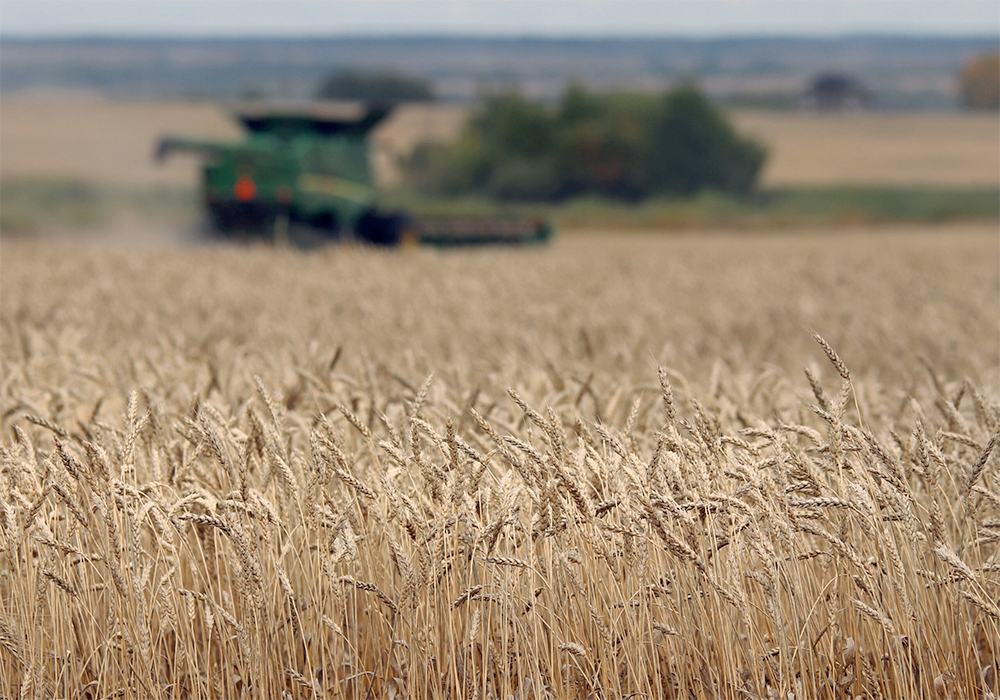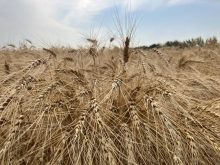Countries that rely on Russian and Ukraine grain to meet a large part of their wheat and corn needs must be feeling nervous about where they will get supply.
It’s an immediate concern as Russia’s unprovoked invasion of Ukraine disrupts the latter’s ability to ship and to seed crops and the former’s ability to conduct commercial grain transactions as the world heaps an avalanche of sanctions on its economy and banks.
The conflict has pushed already high wheat prices to levels not seen since the 2008 record spike, and corn and oilseeds are close on wheat’s heels. This adds to already high global inflation.
Read Also

Volatile temperatures expected for this winter
DTN is forecasting a lot of temperature variability in the Canadian Prairies this winter. Precipitation should be close to average.
But the disruption could also be long term for everyone in the global grain market, leading to shortages and adjustments, hunger but also opportunities and even political instability in some import-reliant countries.
It is impossible to predict how long the war will continue and how all this will end.
The best thing would be if forces within Russia were able to depose president Vladimir Putin and his enablers and end the Ukraine invasion, allowing the West to lift sanctions and Ukraine, with assistance, to start rebuilding.
But I am pessimistic this will happen in the next few weeks. I fear Putin will capture enough of Ukraine to install a puppet regime. Ukrainian resistance would continue as would the sanctions on Russia.
As the pain builds, eventually Russians might reject Putin, but by then the damage will be enormous.
Already an iron curtain of sanctions and investment pull-outs isolates Russia’s economy.
I am not clear whether the restrictions on some Russian banks’ access to the SWIFT financial transaction messaging system affects grain export deals.
However, it appears the general financial turmoil, port closures, soaring maritime insurance rates for the Black Sea and lack of ships willing to call at Russian ports has stopped Russian exports by sea.
Russia is blockading Ukraine ports so nothing is moving out of that country. Most of Ukraine’s wheat is winter seeded so it is already in the ground but its corn, sunflowers and barley must be seeded come April and May. If not, they will be out of the market in 2022-23.
In 2020, Ukraine accounted for 13 percent of the corn traded in the world, eight percent of the wheat, 47 percent of the sunflowers and 14 percent of the barley.
This must be deeply concerning to many of the world’s top wheat importers, several of which border on or are in close proximity to the Black Sea.
Egypt, the world’s leading importer, turned to Russia for almost 70 percent of the total 12.15 million tonnes it brought in in 2020-21, according to U.S. Department of Agriculture figures. Ukraine supplied almost 20 percent.
Indonesia, the world’s second largest wheat importer, got 27 percent of its needs from Ukraine, but very little from Russia.
Number three, Turkey, got 77 percent of its 8.15 million tonnes of imports from Russia and nine percent from Ukraine.
China was number four and got only a small amount from Russia and Ukraine. China signed a large trade deal including agriculture with Russia just before the Olympics.
Costs are soaring for the United Nations World Food Program (WFP), which supplies grain in humanitarian crises, such as in the war in Yemen and now the war in Ukraine.
“This is not just a crisis inside Ukraine. This is going to affect supply chains, and particularly the cost of food … that means more people are going to go to bed hungry,” WFP executive director David Beasley warned in a news release.
“The bullets and bombs in Ukraine could take the global hunger crisis to levels beyond anything we’ve seen before.”
In the short term, there is opportunity for other grain producers. Canada’s supply is tight because of the drought but others with exportable surpluses can sell more product at high prices.
Demand from the Middle East and North Africa for European wheat soared in the past week. The demand was so heavy that some countries worried about depleting their own supply. Hungary banned grain exports March 4.
If this conflict goes on for months it would not surprise me if those levying sanctions on Russia give an exemption for grain, as they have with gas and oil, because its role in global food supply is so important.
But I expect it will be far from business as usual.
And so global grain prices will remain high.
Over time, farmers around the world react to high prices and increase production. Environmentally sensitive land is pressed into production.
Sometimes the boom goes bust as the production expansion overshoots need, leading to surpluses that drive prices back down, leading to inadequate farm income.















